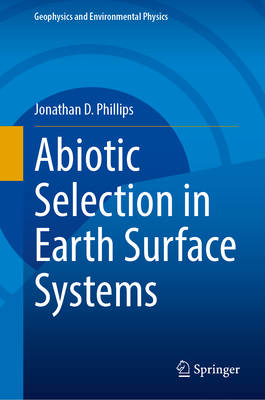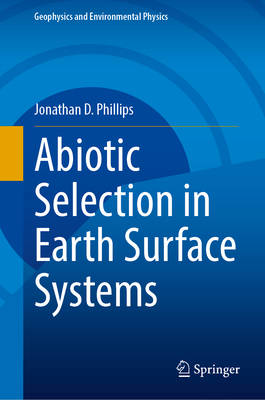
- Afhalen na 1 uur in een winkel met voorraad
- Gratis thuislevering in België vanaf € 30
- Ruim aanbod met 7 miljoen producten
- Afhalen na 1 uur in een winkel met voorraad
- Gratis thuislevering in België vanaf € 30
- Ruim aanbod met 7 miljoen producten
Zoeken
Omschrijving
This book is about abiotic selection in Earth surface systems. It demonstrates that seemingly purposeful or goal-oriented phenomena in Earth's processes actually emerge from selection dynamics. While many think of selection in the context of biological evolution, it extends to abiotic processes crucial in understanding Earth's function and evolution. The author delineates four forms of geophysical selection: gradient, resistance, network, and thermodynamic. These selections manifest in various natural systems, from fluid flows shaping landscapes to the efficient transport of mass and energy. The book acknowledges the interplay of geophysical and ecological processes, employing them as pedagogical tools. Structured with an introduction to abiotic selection and its context, the book delves into the application of key principles--such as thermodynamics and flow dynamics--to Earth surface systems. Each subsequent chapter examines one of the four types of selection, featuring diverse real-world examples from climate dynamics to oceanography. Geared toward researchers, graduate students, and practitioners in fields such as geophysics, geology, geography, hydrology, and ecosystem sciences, it also appeals to those interested in evolutionary thinking beyond traditional life sciences.
Specificaties
Betrokkenen
- Auteur(s):
- Uitgeverij:
Inhoud
- Aantal bladzijden:
- 246
- Taal:
- Engels
- Reeks:
Eigenschappen
- Productcode (EAN):
- 9783031858611
- Verschijningsdatum:
- 21/06/2025
- Uitvoering:
- Hardcover
- Formaat:
- Genaaid
- Afmetingen:
- 156 mm x 234 mm
- Gewicht:
- 539 g

Alleen bij Standaard Boekhandel
+ 358 punten op je klantenkaart van Standaard Boekhandel
Beoordelingen
We publiceren alleen reviews die voldoen aan de voorwaarden voor reviews. Bekijk onze voorwaarden voor reviews.







